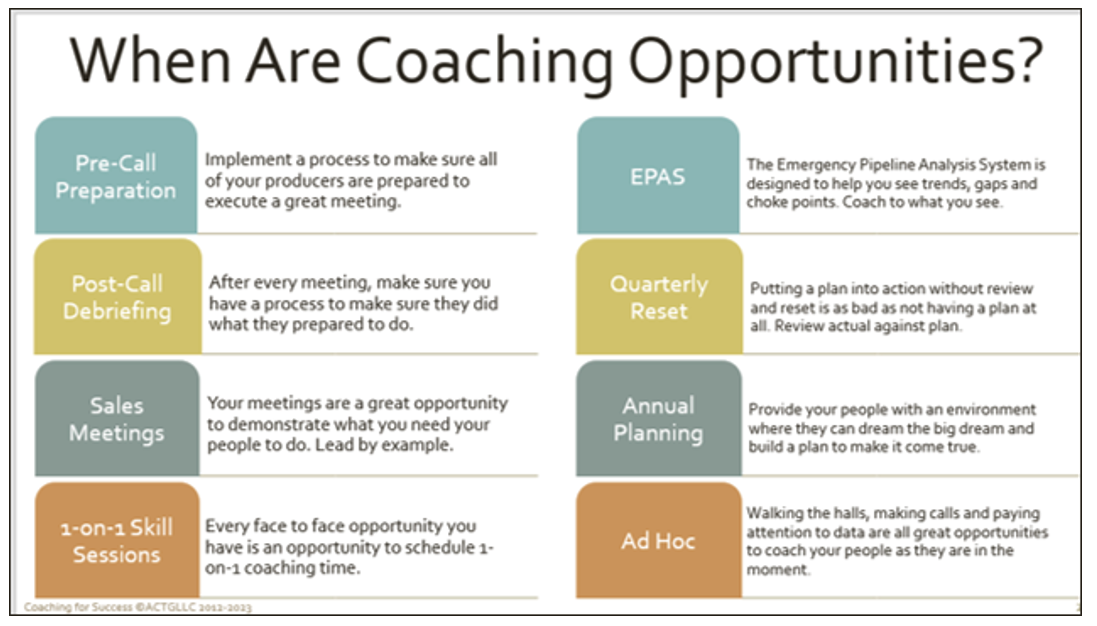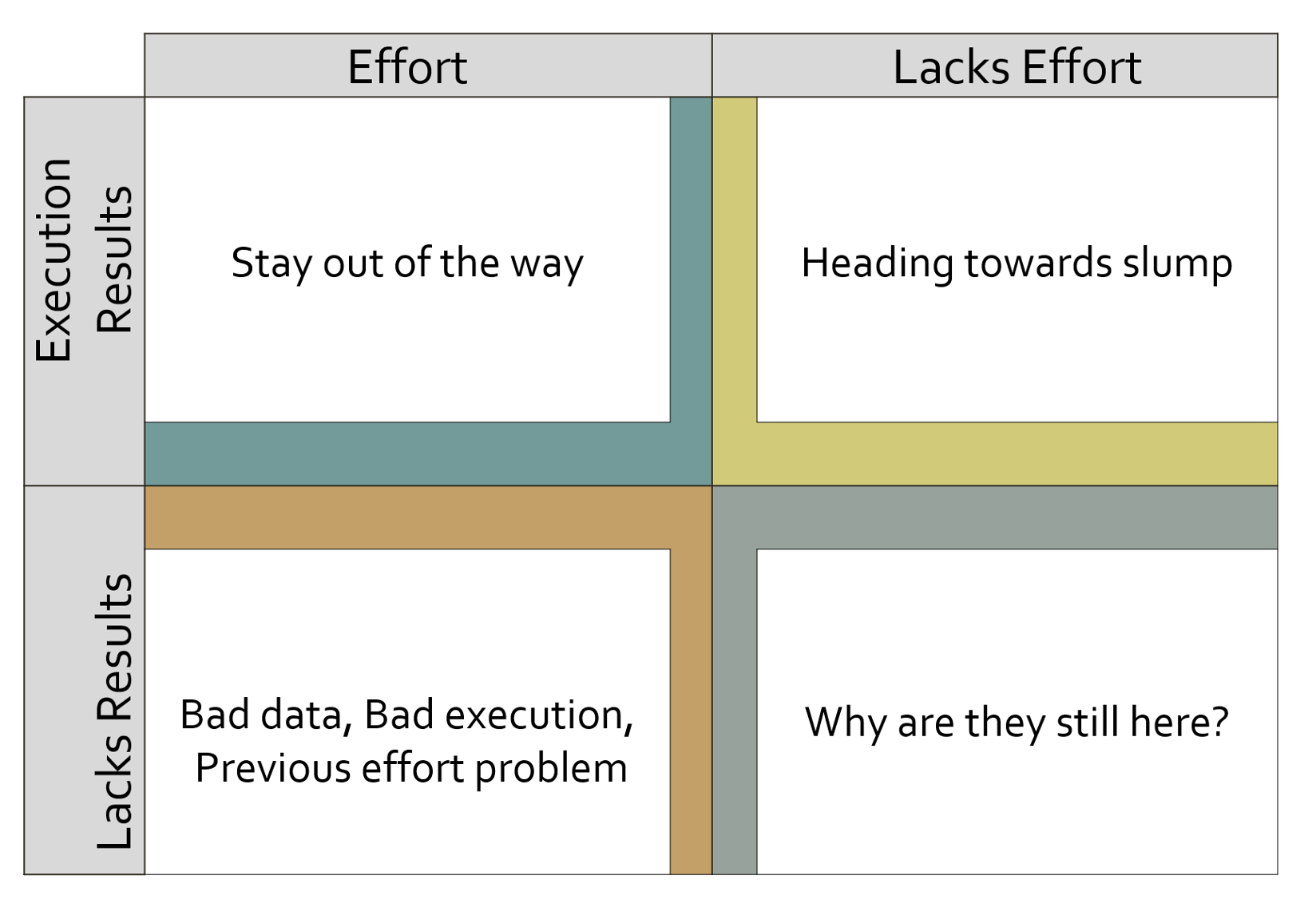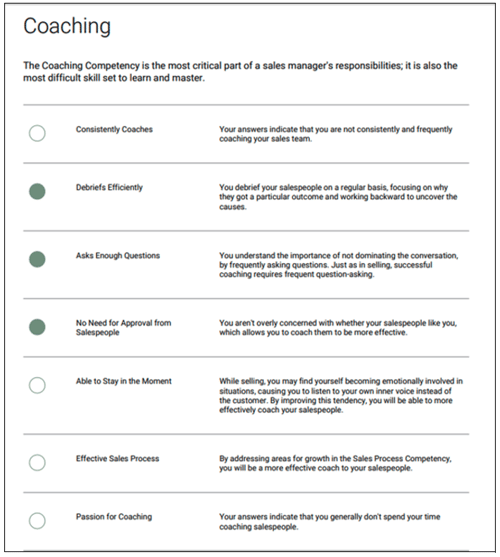The Coaching Competency is the most critical part of a sales manager's responsibilities; it is also the most difficult skill set to learn and master. There are many aspects that make up an effective coach including coaching consistency, asking enough questions, the ability to stay in the moment while coaching, having a passion and supportive beliefs for coaching, not rescuing salespeople and being effective at getting commitments from salespeople. Of course, all of these point to the importance of constructive sales feedback while coaching. Not all coaching is helpful and constructive.
What is Constructive Sales Feedback?
There are many opportunities in the day of a sales coach to provide sales feedback so what makes it constructive? Constructive sales feedback should include:
- Asking enough questions
- Listening to understand
- Drilling down on answers
- Discovering your salesperson’s motivation
- Getting commitment on next steps
- Having them practice their skills for development
- Refining and improving strategies
- Demonstrating effective skills in qualifying, presenting and closing
- Helping your salespeople improve skills, not just close the deal at hand
The importance of constructive sales feedback involves helping salespeople self-discover what they are doing wrong or should be doing differently. Strong sales leaders will ask questions versus tell a salesperson what to do. In coaching sales behaviors, how you say something can be more important than what you say. Instead of saying “You should have asked your prospect about their current provider”, you could ask “What did you find out about their current provider?” Asking questions will allow salespeople to self-discover, which is a key result of constructive sales feedback.
When Should Managers Provide Constructive Sales Feedback?
According to Objective Management Group, our sales evaluation partner and pioneer in the industry, many sales managers believe that coaching means helping salespeople with pricing and technical questions on an ad hoc basis. Strong and effective sales coaches, however, schedule multiple coaching conversations with their salespeople each week to provide constructive sales feedback, improve their skills and help them win more deals. It is important that sales managers set aside specific time for intentional coaching, not just coaching to a specific deal or proposal. Sales managers should put time on the calendar weekly for 1 on 1 coaching with salespeople that can be used to prepare for an upcoming call or debrief after a recent sales call.
There are many opportunities for a sales coach to provide constructive and important feedback to their team:

Why doesn’t coaching occur as often as it should? One of the most difficult skills for most sales managers to overcome is their need for approval from their salespeople. Coaching is different than managing and requires clear direction, discussion, examples and demonstration of what is expected of a salesperson. This can be hard for a manager, who also wants their team to like them. They may not want to come off as critical. The importance of providing constructive feedback and coaching sales behaviors is a critical part of the development of a sales manager. A strong sales leader and coach must be adept at asking great questions, listening closely and staying focused on developing salespeople to be their best. Their primary focus is developing their salespeople and achieving goals through the efforts and success of others.






